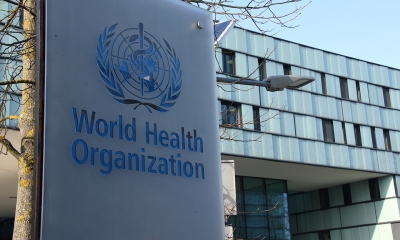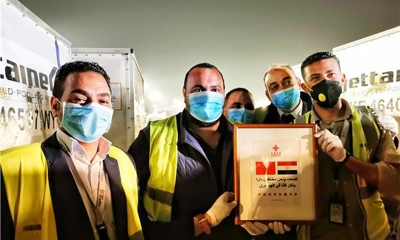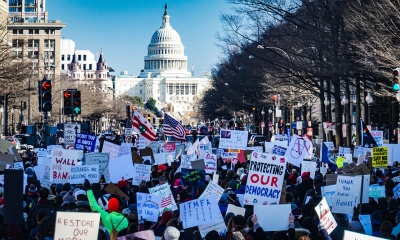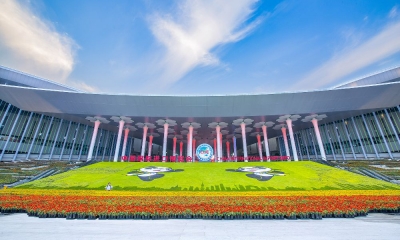President Xi Jinping Inaugurates a “New Golden Decade” In Johannesburg
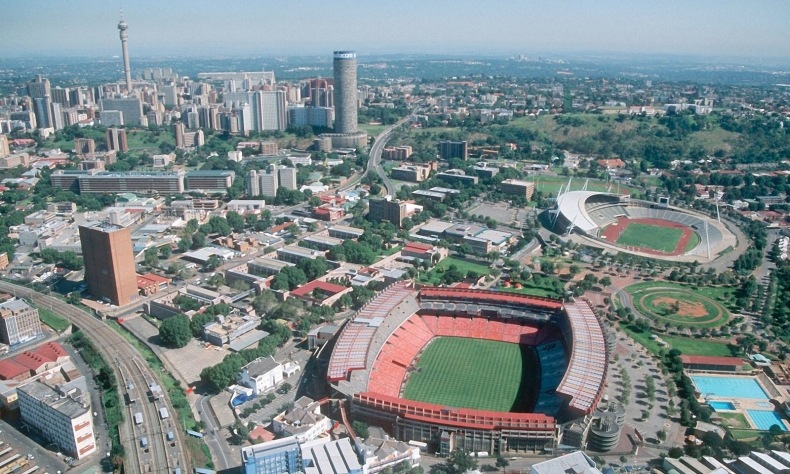
Why President Xi‘s speech was filled with trust and hope? What is the “Golden Decade”? What are the challenges? How can we reach there?
“We cannot find a better place to chart the course for our Golden Decade than in this golden city. Here in Johannesburg, I look forward to working with other BRICS leaders to embark on a new journey of BRICS cooperation and fulfill our new mission.” —President Xi Jinping, at the 10th BRICS Forum in South Africa
ΔPresident Xi Jinping delivers a speech titled “Turn Our Vision into a Reality” at the Plenary Session of the 10th BRICS summit in Johannesburg, South Africa, July 26, 2018. [Photo/Xinhua]
Why President Xi’s speech Was Filled with Trust and Hope?
Because of the many concrete successes that have been achieved during the first decade of the BRICS.
First, BRICS have built a strong institutional body.
New Development Bank ; Contingent Reserve Arrangement (CRA), which is a framework for providing protection against global liquidity pressures ; BRICS Think tank council (BTTC), to facilitate the exchange of ideas among, researchers, academia and think tanks ; Academic forum, which is a platform for academics to engage on important political, economic and social issues ; Business council (BBC), which comprises entrepreneurs in different sectors such as transport, electricity and manufacturing ; Civil forum that is a civil-society platform that aims to influence BRICS on issues such as health, education, conflicts, development and culture ; Digital platform, a platform that shares knowledge related to the Internet and data within the BRICS countries ; Economic forum, a forum that focuses on economic challenges and opportunities of the BRICS countries ; Financial forum, that includes government, business and academics and deals with financial opportunities and threats for BRICS countries ; and other initiatives that cover people to people relations such as arts, trade fair, tourism and sports.
Δ Kundapur Vaman Kamath, president of the New Development Bank (NDB), attends a session where NDB holds its first green bond roadshow, in Shanghai. [Photo/Agencies]
These institution building are critical, as they illustrate a shared interest in the development of respective domestic economies and strategies to overcome common challenges, notably in addressing issues such as infrastructure development and industrialization.
The NDB has signed partnership agreements with a number of multilateral development banks, regional and national development banks and private banks to address the aforementioned challenges related to infrastructure. In 2016, the NDB approved seven projects, all related to sustainable infrastructure in all five member states, totaling US$1.5 billion. In 2017, the NDB approved 10 loans amounting to US$2.6 billion, including loans of US$1.7 billion to Russia, India and China. In 2018, the NDB aims to approve a total loan book of about US$8 billion for a proximately 35 projects.
Second, the BRICS Plus initiative has been a success.
The BRICS Plus mechanism gave an opportunity for reaching out of the framework and to accommodate Emerging Markets and Developing Countries (EMDCs). It created a new platform for forging regional and bilateral alliances across continents and brought together the regional integration blocks, in which BRICS economies play a leading role.
Third, BRICS trade cooperation has grown rapidly.
Δ Containers waiting to be loaded aboard.[ File photo/Chinanews.com]
Total intra-BRICS trade has reached a value of US$462 billion in 2017 from US$204 billion in 2010.
What Is the “Golden Decade”?
As President Xi explained in his speech, “The next decade will be a crucial one in which new global growth drivers will take the place of old ones. A new round of revolution and transformation in science, technology and industries featuring artificial intelligence, big data, quantum information and bio-technology are gaining momentum. They are giving birth to a large number of new industries and business forms and models and will fundamentally change global development and people‘s work and lives. We must seize this important opportunity to enable emerging markets and developing countries to achieve leapfrog development.”
What Are the Challenges?
Geopolitical hotspots keep emerging, and the dark shadow of terrorism and armed conflicts still haunts us. Unilateralism and protectionism are rising, dealing a severe blow to multilateralism and the multilateral trading regime.
Δ Ma Xuejing/China Daily
The international community has reached a new crossroads; and we are facing a choice between cooperation and confrontation, between opening-up and a close-door policy. And of course, domestic challenges remain in each country.
How Can We Reach There?
Treat all countries as equals regardless of their size, address issues that matter to all through consultation and oppose hegemony and power politics. Promote common, comprehensive, cooperative and sustainable security. Take part in mediation efforts for resolving geopolitical hotspot issues. Firmly support multilateral trading regime, advance global economic governance reform and increase the representation and voice of emerging markets and developing countries. When new rules are made on such issues as innovation, trade and investment and intellectual property protection or on new frontiers including cyberspace, outer space and the polar regions, we should make sure that the views of emerging markets and developing countries are heeded, their interests and demands are taken into consideration, and that there are sufficient opportunities for their development.
Δ Guests leave the opening ceremony of the BRICS Political Parties, Think Tanks and Civil Society Organizations Forum in Fuzhou, Fujian province, in June, 2017. [Photo/XINHUA]
Pursue innovation and seize development opportunities, especially in science and technology, which are the primary production forces. Every country has to seize opportunities, increase input in innovation, focus on creating new areas of growth and replace old growth drivers with new ones. We should endeavor to advance structural reform, remove all institutional barriers to innovation and fully unlock innovation potential and energize the market. We should ease the impact of application of information technology, automation and smart technology on traditional industries and create new job opportunities in the process of fostering new industries.
Pursue inclusive growth to deliver benefits to people of all countries. BRICS should harmonize their initiatives with the 2030 Agenda for Sustainable Development which provides a comprehensive action plan for the international community. We should put people first, ensure coordinated economic and social development and protect the environment. We should ensure harmony between man and nature and encourage the international community to fully implement the Paris Agreement. We should treat nature with respect and do more to foster an ecological system conducive to green development.
Δ South African President Jacob Zuma arrives Wednesday morning at an airport in Sanya, South China’s Hainan Province to attend the BRICS Leaders Meeting. [Photo/Xinhua]
What Is the Africa Share in the Golden Decade?
Africa has a greater development potential than any other region in the world. BRICS should strengthen cooperation with Africa, support its development and make BRICS-Africa cooperation a model for South-South cooperation. Carry out cooperation with African countries in such areas as poverty reduction, food security, innovation, infrastructure development and industrialization in a way compatible with their national conditions. Help African countries develop their economic structure, contribute to the implementation of Agenda 2063 of the African Union and thus enable Africa, an ancient continent, to gain strong vitality.
What Is China’s Role in the “Golden Decade”?
China will ride the trend of the times and pursue innovation-driven, coordinated, green and open development for all. Pursue innovation-driven development and fully engage in international cooperation on innovation and technologies. Take an active part in South-South cooperation to foster greater opportunities for common development of emerging markets and developing countries.
Δ Chinese President Xi Jinping speaks at the plenary session during the BRICS Summit in Xiamen, Fujian province on September 4, 2017. [Photo/Xinhua]
China will build a more investment-friendly environment that is aligned with international standards, more transparent and law-based and will encourage competition and oppose monopoly. China will take tough law-enforcement steps to strengthen the intellectual property protection rights and make IPR infringement even more costly. We will encourage companies to maintain normal technological exchanges and cooperation. China will also increase imports to promote balance of payment under the current account.
China will continue to vigorously pursue the “Belt and Road Initiative” to create new opportunities of social and economic development for participating countries and for them to implement the UN 2030 Agenda. The “Belt and Road Initiative” is guided by the principle of seeking shared benefits through extensive consultation and joint contribution.
Finally, it was the first time that I witnessed a speech of such depth and accuracy. The Chinese President‘s speech was full of ideas, plans and initiatives. He used the best words to express his ideas. I hope that all the ideas and initiatives in the President Xi’s speech will be realized and that the leaders of all countries will come together to achieve a better life for their peoples.
Hisham AbuBakr Metwally, First Economist Researcher at the Central Department for Export & Import Policy under the Egyptian Ministry of Foreign Trade and Industry
Editor: Cai Hairuo
Intern Editor: Shou Pan
Opinion articles reflect the views of their authors, not necessarily those of China Focus
Related Readings:
An Era of Prosperous Sino-African Economic and Trade Cooperation
 Facebook
Facebook
 Twitter
Twitter
 Linkedin
Linkedin
 Google +
Google +











